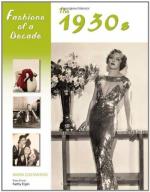|
This section contains 482 words (approx. 2 pages at 300 words per page) |

|
The crash itself reflected widespread mismanagement of the economy. The Federal Reserve system failed to stem the rise of easy credit by raising the discount rate it charged to member banks. Banking and finance were virtually unregulated, and this led to unsound practices, such as pyramiding industries (utility magnate Samuel Insull held sixty-five chairmanships, eighty-five directorships, and seven presidencies of major corporations), banks lending money for security purchases, and fraudulent investment schemes. Mismanagement was also evident in the American response to problems of world trade. World War I had badly disrupted world trading patterns. European nations, stunned by their strategic vulnerability during the war, responded by raising trade barriers after the conflict, seeking economic self-sufficiency and wrecking traditional channels of trade. The United States did much the same, passing the highest tariff in modern American history in 1922. The tariff was disastrous in the...
|
This section contains 482 words (approx. 2 pages at 300 words per page) |

|




